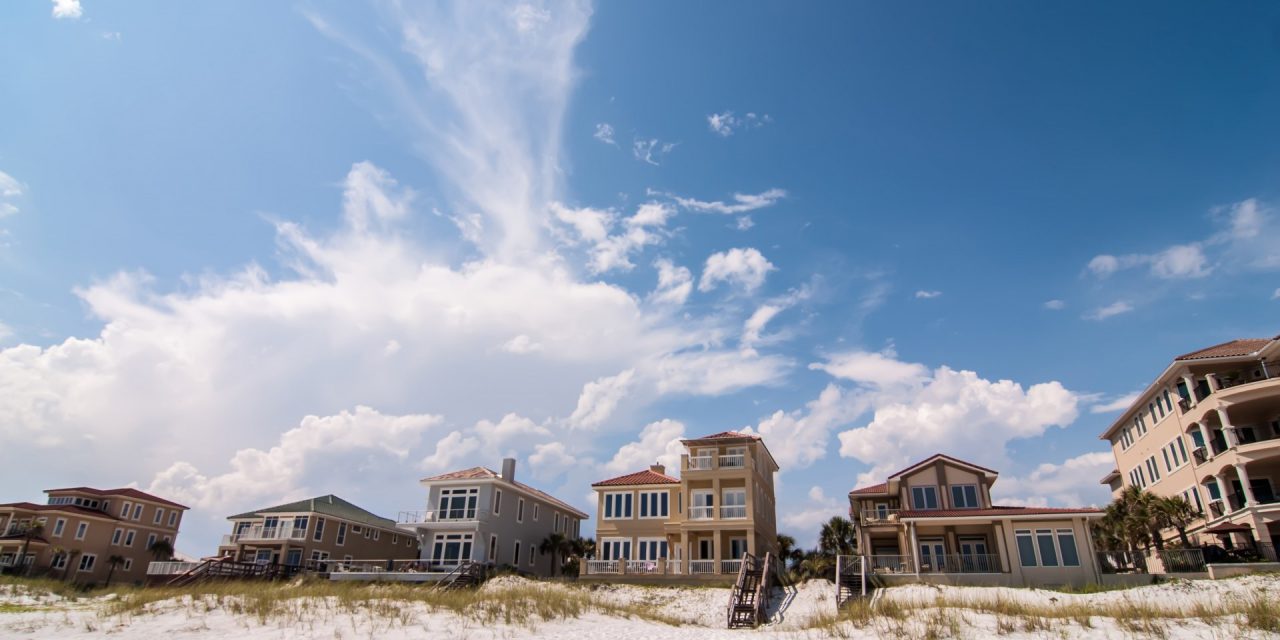The following excerpt is from the forthcoming edition of Tax Benefits of Ownership which gives an overview on vacation home sales.
Held for investment and personal use
A vacation home, also known as a second home, is a dwelling unit, such as a house, apartment, condominium, mobile home, recreational vehicle, or boat, personally used by the owner or co-owners and their families or friends as a residence other than the owner’s principal residence. The vacation home may be used by guests who pay rent, also called transient occupants, and retain its status as a vacation home.
Property taxes and interest, accrued and paid on purchase-assist mortgages secured by a vacation home, are itemized and deducted from the owner’s adjusted gross income. Property taxes, when combined with other state and local taxes, are collectively limited to the amount of the standard personal deduction.
The use of the property and the length of occupancy by the owner or paying guests does not affect the itemized deduction for mortgage interest. [Internal Revenue Code §§163(h)(4)(A)(iii), 280A(e)(2)]
However, the deduction of expenses incurred for repair and maintenance of a vacation home is not permitted unless the property is rented to guests and the amount of expenses deductible is prorated based on the total days of all types of occupancies.
Further, depreciation deductions are permitted when the vacation home is occupied by paying guests during the year and the owner occupies the unit for not more than 14 days during the year.
Finally, the owner reports the vacation home income, expenses, and depreciation in one of the three income categories —passive, portfolio or trade or business — depending on the nature of occupancies during the year.
Interest deductions for second homes
Recall that the owner of a first or second home deducts interest accrued and paid on mortgages, secured by either home, under the mortgage interest deduction (MID) rules. The MID has a ceiling limiting interest accrued and paid on a combined $750,000 in principal on mortgages used to fund the purchase or improvement of the home securing the mortgage. [IRC §163(h); IRS News Release 2018-32]
Interest paid on mortgage balances exceeding $750,000 in principal is not deductible.
The deduction allowed for interest paid on the first and second home mortgages is subtracted from the owner’s adjusted gross income. Thus, the owner reduces their taxable income under both the standard income tax (SIT) and alternative minimum tax (AMT) reporting rules.
In contrast, the real estate property tax deduction on the first and second homes only reduces the owner’s taxable income for SIT, not AMT tax liability. The owner of a vacation home may deduct the full amount of property taxes they paid from their SIT income, without reduction for having rented the property for any period. Again property and state tax write offs are limited by the personal deduction ceiling which is separate from the ceiling for the MID. [IRC §164]
Deductibility of expenses
The owner’s deductibility of expenses incurred to repair and maintain the vacation home is determined by whether:
- the vacation home is used exclusively by the owner and their family or friends and is not rented – here, the expenses for repair and maintenance are not deductible against any income [IRC §280A(a)];
- the vacation home is rented for not more than 14 days during the taxable year – here, no expenses may be written off (and the owner reports no rental income) [IRC §280A(g)]; or
- the vacation home is rented for more than 14 days – here, a pro rata amount of the expenses incurred to operate the vacation home is deductible, determined as a percentage of the number of days rented over the number of days occupied for personal use, family or friends (other than days occupied for property repairs and maintenance). [IRC §280A(e)]
Exception for repairs and maintenance
The days of personal use for setting the percentage of expenses and depreciation which may be deductible, excludes days during which the owner conducts a full-time schedule of repair and maintenance of the property. [IRC §280A(d)(2)]
Consider the owner of a vacation home who arrives at the property with their family on a Saturday afternoon to stay until the following Saturday. The primary purpose for the stay is relaxation and the performance of annual repairs and maintenance to prepare the property for the vacation rental season. They do no maintenance work on Saturday, the day of arrival. The owner and their spouse relax the entire week, fishing, walking and visiting neighbors. They occasionally assist other family members in the maintenance of the property.
However, some members of the family work on the property full-time each day, except for the days of arrival and departure. They all leave the following Saturday.
Here, the mixed use of the vacation home is not treated as personal use — it is primarily for repairs and maintenance of the property. Tax-wise, none of the days spent at the property are personal use days.
Depreciation deductions based on who uses it how long
The owner of a vacation home may take depreciation deductions to recover the cost of the improvements, unless the owner, their family, or friends occupy the vacation home during the year for periods totaling more than 14 days or 10% of the days the property is rented, whichever is greater. [IRC §280A(d)(1)]
Consider the owner of a vacation home who rents it during the year at a fair rental rate for a total of 140 days or less. The owner, and people who pay less than fair rent, occupy the property for no more than 14 days. Here, the owner may take the full amount of the scheduled depreciation deduction. [280A(d)(1)]
However, should the property be rented out for more than 140 days during the year, the total number of days the owner may personally use the vacation home without losing the right to depreciation deductions may exceed 14 days, limited to 10% of the days rented. For example, the owner of a vacation home who rents the property 200 days during the year is allowed up to 20 days of personal use of the vacation home. Owners who exceed their occupancy limit may not take depreciation deductions on the vacation home. [IRC §§163(h)(4)(A)(i)(II)]
For income tax reporting, the owner of a vacation home uses two depreciation schedules:
- 5 years straight-line depreciation for SIT reporting; and
- 40 years straight-line depreciation for AMT reporting.
Vacation home reporting, but in which income category?
The ownership of a vacation home is reported, depending on the owner’s personal use of the home and the average length of the occupancies of paying guests and tenants, as an asset in one of the three income reporting categories:
- trade or business;
- passive/rental; or
- portfolio/investment.
A vacation rental property is reported as a trade or business income category asset when the owner, their family or friends do not occupy it at any time but manage the property as a vacation rental. Here, the owner or their agent takes reservations from guests under occupancy agreements with an average period of occupancy 30 days or less. As a trade or business asset, the owner reports the income, expenses, interest, and depreciation for the vacation rental property as they would for a motel, inn, or hotel operation.
Conversely, a vacation home personally used for any period during the year is not classified as a trade or business category asset, even when guests renting the property are transient occupants with an average occupancy of 30 days or less. [Revenue Regulations §1.469-1T(e)(3)(ii)(B)]
When the vacation home is sometimes used by the owner, family, friends, and at other times rented to tenants or guests, the ownership of the home is reported as either:
- a rental property in the passive income category; or
- an investment property in the portfolio income category.
To be a rental property, the vacation home income needs to be occupied by tenants for periods more than 30 days on average. Typically, a residential month-to-month rental agreement is used to document the tenant’s agreement to pay rent. When the average figure for different occupancies during the year is 30 days or less, the vacation home is not a passive income category property.
Thus, vacation homes occupied by transient occupants for periods of several days to a week or two, under a guest occupancy agreement, disqualify the property for passive income category treatment as it is a trade or business asset due to average occupancy (if family and friends never occupy).
However, when a capital asset is held for investment, such as a vacation home personally used by the owner, their family and friends, and at other times used to generate income under reservation agreements with transient occupants, its income and expenses are reported in the portfolio income category.
A vacation home as §1031 property
Consider the buyer of a vacation home who purchases the property for the personal use of family and friends. The owner’s intent is to own and enjoy the property until it is no longer of use as a vacation home.
Having acquired ownership of the vacation home, the owner is now working with an agent to buy another, more expensive vacation home in a different recreational area of more interest to their family members. The owner informs the agent they are in escrow on the sale of their current vacation home. They are taking a profit and are unsure of the tax consequences of selling and buying these properties.
The owner is aware they may avoid profit taxes under:
- the $250,000 principal residence profit exclusion for each owner or occupant [IRC §121]; and
- the §1031 profit tax exemption for the sale of property held for investment, when sold as part of a §1031 reinvestment plan.
However, the owner is unaware of any method of tax avoidance for profits from the sale of a vacation home that the owner and their family enjoyed intermittently for personal use and rented on occasion. The owner asks their agent what they know about the profit tax situation on a vacation home.
The broker points out that the personal use of a vacation home by the family and friends to enjoy is not a factor in the property’s tax status. Rather, the intention to hold the vacation home for eventual resale at a profit establishes the vacation home as an investment in a capital asset held for profit in the portfolio income category — and thus it is §1031 like-kind property.
The owner erroneously believed their personal use of the vacation home did not qualify the property as like kind for a §1031 reinvestment plan.
Here, the vacation home was never intended to be retained in the family as property held in trust, such as a retreat estate made available for the personal use of succeeding generations. Thus, a vacation home used exclusively or primarily for personal use and held as an investment for eventual resale may be sold as part of a §1031 reinvestment plan to acquire a replacement vacation home or any other §1031 like-kind property. [IRC §1031(a); IRS Private Letter Ruling 8103117]



















